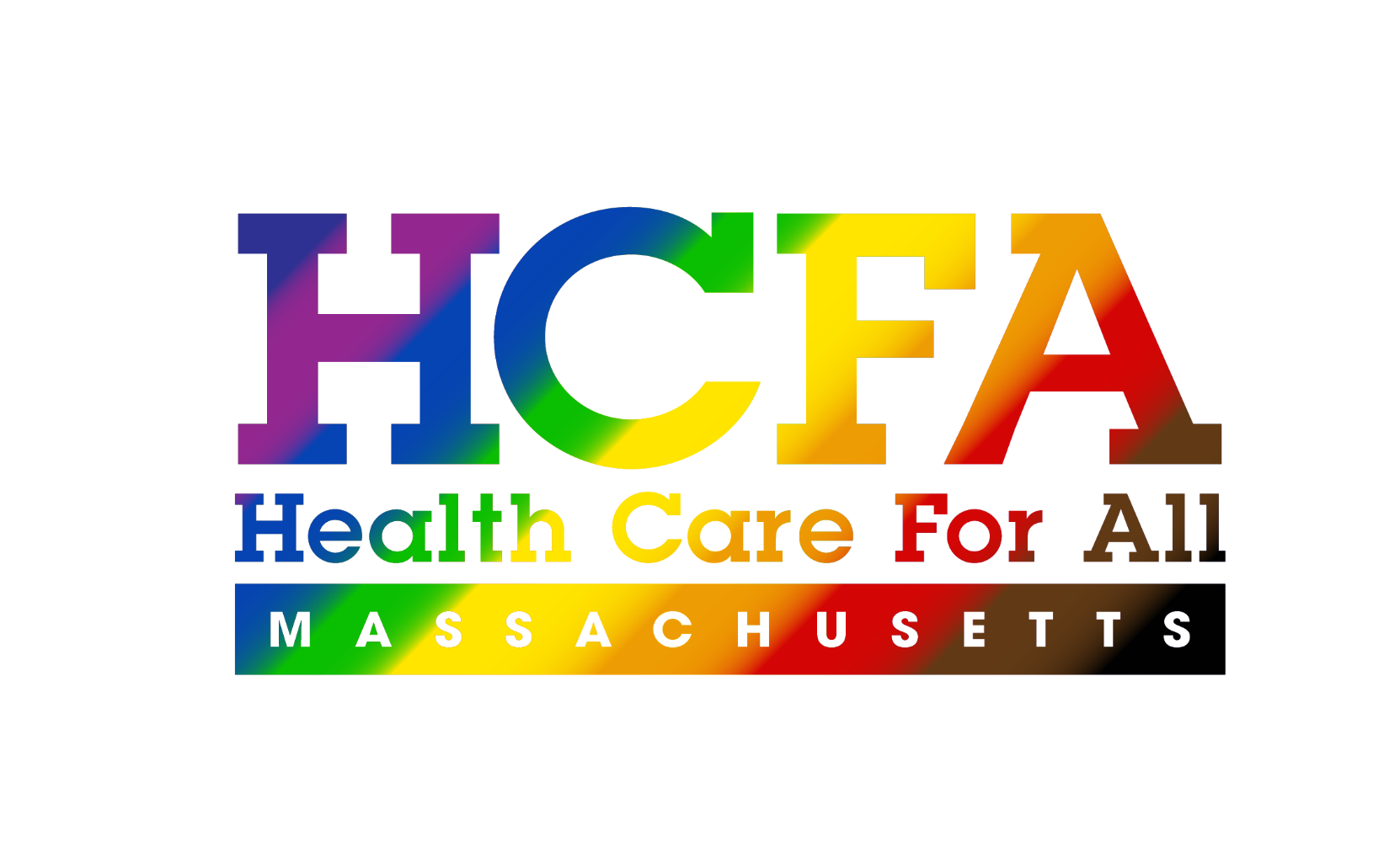This month we celebrate LGBTQ+ Pride, a month dedicated to celebrating and commemorating the LGBTQ+ community, including those who took a stand against discrimination at the Stonewall Riots. Through the 1960s, police raids targeting the LGBTQ+ community were a fairly common practice. On June 28, 1969, police attempted to conduct one of these raids at the Stonewall Inn, a bar located in New York City. Unlike previous raids, however, patrons at the bar fought back as riots broke out, sparking a movement focused on LGBTQ+ rights in the United States. On the one-year anniversary of the Stonewall Riots, the first Pride march was held. Each year since, Pride marches across the country have grown in attendance and visibility. This year, more than 1 million people attended Boston Pride on June 8. The growth of Pride only emphasizes the tremendous progress that has been made. It is in this celebratory spirit that Health Care For All (HCFA) reflects on some recent wins made in LGBTQ+ health care.
Massachusetts protections of gender affirming care
In 2013, HCFA, along with Community Catalyst, Health Law Advocates, Mass Transgender Political Coalition, GLAD, AIDS Action Committee, MassEquality and others, became a founding member of the Massachusetts Trans Health Coalition (MTHC) which works to increase access to equitable health care for transgender and gender non-conforming people and leverages the law to promote transgender-inclusive policies in the state. While the passage of Chapter 199 in the Acts of 2011 protects residents of Massachusetts from discrimination on the basis of gender identity in employment, housing, and other areas, it does not specify any protections in health care. It wasn’t until 2014, with pressure from the MTHC, that the Division of Insurance issued guidance confirming that discrimination in health care coverage on the basis of gender identity is prohibited. MassHealth shortly followed suit with their own set of policies. HCFA remains an active member of the coalition and continues to fight for access to gender affirming care, including supporting bills requiring coverage for gender affirming hair removal (S.621) and ensuring letters of medical necessity for gender affirming care are not rejected (H.1037/S.596).
In 2022, Massachusetts was one of the first states to pass legislation codifying both abortion care and gender affirming care in reaction to the Supreme Court decision in Dobbs v. Jackson Women’s Health Organization. The Dobbs decision overturned Roe v. Wade, eliminating the right to abortion and left many worrying about the security of other rights granted to Americans through Supreme Court decisions, such as the right to contraception and the right to same-sex marriage. With the Dobbs decision and a recent wave of anti-LGBTQ+ state legislation in mind, Massachusetts passed Chapter 127 of the Acts of 2022 which codified essential protections for patients seeking gender affirming and reproductive care, including protections for individuals coming from out of state. In addition to protecting patients, the law also shields health care providers from out-of-state legal action. Massachusetts is 1 of 13 states that have passed laws protecting providers of transgender care and ensuring this care can continue to be offered without fear.
Increasing access to HIV related care
Since the beginning of the HIV/AIDs epidemic in 1981, hundreds of thousands of young people have died leaving friends, families and communities behind. At that time, HIV was considered a death sentence and people diagnosed with AIDs were only given a couple of years to live. Today, individuals with HIV can live long and healthy lives thanks to the development of antiretroviral therapy (ART) which prevents individuals with HIV from developing AIDs in the first place. ART can also help reduce the viral load of HIV in the body to undetectable levels which means that the person with HIV cannot transmit the virus to others. In 2012, Preexposure Prophylaxis (PrEP), an HIV prevention medication for uninfected individuals that reduces the risk of getting HIV by 99% was approved by the FDA. In 2019, the United States Preventive Services Task Force, recognizing it as a lifesaving preventive measure, added PrEP to the list of preventive services that must be covered by private insurers without out-of-pocket costs under the Affordable Care Act (ACA). Further federal guidance made it so ancillary services for PrEP, such as laboratory tests for HIV, must also be covered making PrEP more accessible than ever before.
Sadly, in March of 2023, a federal judge in Texas issued a nationwide ruling in Braidwood Management Inc. v. Becerra which not only struck down many of the ACA’s requirements for coverage of preventive services but also specifically targeted the coverage of PrEP. To preserve access to preventive services, HCFA, along with a variety of LGBTQ+ health leaders in Massachusetts, helped pass Amendment 407 in the Massachusetts Fiscal Year 2024 (FY24) budget. The passage of this amendment codified into state law the federal requirements for private health insurance plans to cover certain preventive services, such as cancer screenings and PrEP, without cost-sharing for enrollees.
Codification of LGBTQ+ protections in the Affordable Care Act
Most recently, a landmark final rule under Section 1557 of the ACA codified national LGBTQ+ protections in health care. Section 1557 contains the law’s nondiscrimination provisions which prohibit discrimination on the basis of race, color, national origin, age, disability or sex. These protections went into effect when the ACA was enacted in 2010 and made it unlawful for any federally funded health care provider to deny benefits, coverage or treatment based on these factors. On April 26, 2024, the U.S. Department of Health and Human Services Office for Civil Rights and the Centers for Medicare and Medicaid Services issued a final rule under Section 1557 which codified that sex discrimination includes but is not limited to discrimination on the basis of sex characteristics, intersex traits, pregnancy and related conditions, sexual identity and sex stereotypes. The rule was made in part to be consistent with the decision in Bostock v. Clayton Country where the Supreme Court determined that Title VII of the Civil Rights Act of 1964 protects individuals from discrimination based on sexual orientation and gender identity. This rule provides federal opposition to state legislation aimed at limiting access to care for LGBTQ+ folks, especially for transgender and gender non-conforming individuals.
Each of these wins has increased access to care and saved the lives of many individuals in Massachusetts and across the country. Nevertheless, health disparities and barriers to accessing care persist. It is by drawing from the bravery and leadership of community advocates and leaders in LGBTQ+ rights that HCFA continues to support LGBTQ+ health equity with hope and determination.
LGBTQ+ Health Resources:
- MassHealth Coverage for Gender Affirming Care: https://www.mass.gov/info-details/gender-affirming-care-covered-by-masshealth
- MA Trans Health Coalition: https://www.masstpc.org/what-we-do/ma-trans-health-coalition/
- Health Law Advocate’s Transgender Health Care Access Project: https://www.healthlawadvocates.org/initiatives/transgender-health
- Fenway Health Institute: https://fenwayhealth.org/the-fenway-institute/
- NAMI Massachusetts Resources for the LGBTQ+ Community: https://namimass.org/resources-for-the-lgbtq-community/#!/the-community
- GLAD Legal Advocates and Defenders: https://www.glad.org/know-your-rights/
Happy Pride Everyone! We hope that your month is filled with joy and love.
Marcella Lampon is a policy & project coordinator at Health Care For All.


